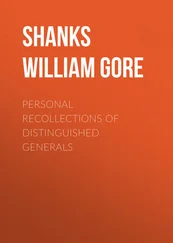The question may be posed whether the protocols, at least for the generals appointed between 1939 and 1943, are representative. The great diversity of careers appears to suggest this conclusion at first glance, but the material does not lend itself to judgements about the group.
Neither age, rank, branch of service, regional origin nor religion indicate whether a man was likely to have attached himself to the pro-or anti-Nazi clique. Political leaning was personal to the officer, in combination with front experience. Living through a military disaster might lead to extensive reflection on politics, strategy and the character of the National Socialist system. The ‘Napoleon winter’ before Moscow in 1941, the catastrophe at Stalingrad, the defeat in Tunisia or the struggle in Normandy left many with a critical view of the leadership and the Nazi State. Such an experience was not necessarily a precondition for an anti-Nazi stance. General der Panzertruppe Heinrich Eberbach had never been a Party member, but was considered before his capture to be a convinced National Socialist, ‘brave, loyal and firm’, according to Guderian. He spent almost the entire war in the FührerReserve or as a field-commander in France. He experienced no great defeats, but at Trent Park spoke out against the war and Nazism. CSDIC (UK) held Eberbach to be ‘a strong personality with clear opinions’ who now believed that the Nazi regime was a criminal organisation and so no longer considered himself bound by his oath of allegiance.
3. The Main Subjects of Discussion
3.1 Politics, Stategy and the Different Camps at Trent Park
When Wilhelm Ritter von Thoma arrived at Trent Park in November 1942, the only other inmate was Ludwig Crüwell, captured five months previously. Both were of about the same age, highly decorated and each had commanded a panzer division on the Eastern Front and in 1942 with the Afrika Korps. The first evening they sat up talking until 2 a.m. Further long conversations followed in the next few days. After a week the first differences of opinion made themselves felt. Crüwell accused Thoma of being ‘negative’. ‘Frankly,’ Crüwell said, ‘talking to you, one gets the impression that you accept all the criticisms of Greater Germany, and that if it had been left to you from the very beginning, everything would have been done so much better.’ [78] The first long conversation, lasting into the early hours of 21.11.1942, was harmonious except for a difference of opinion on Thoma’s attitude to National Socialism. SRM 99, 20.11.1942 and SRM 127, 26.11.1942, TNA WO 208/4136.
From the outset, Thoma had condemned the overall situation because the economic resources of the Allies were increasing while those of the Axis powers were diminishing. He had criticised the decision to attack the Soviet Union, [79] Thoma’s attitude was already clear from a conversation he had with Air Vice-Marshall Conrad Collier during the flight from Cairo to Gibraltar. TNA PREM 3/363/3, SRM 179, 20.11.1942, TNA WO 208/4136.
denigrated Hitler and the Party, [80] A typical outburst of rage by Thoma is documented in SRX 1610, 28.2.1943, TNA WO 208/4162.
described in drastic terms dreadful German war crimes committed in Russia (Document 83) and reported on the programme by which the Jews were to have been removed from Europe by the end of 1942. It was a ‘tragedy of obedience’ [81] SRM 136, 29.11.1942, TNA WO 208/4136.
that German soldiers had gone along with the National Socialist regime. They had let too much go unchallenged, said von Thoma. Of course, no general could simply rebel by himself but the three C-in-Cs could have acted jointly against the outgrowth of the National Socialist State, particularly at the time of the Fritsch affair. [82] SRM 82, 20.11.1942, similar statements in SRM 102, 21.11.1942; SRX 1422, 26.12.1942; GRGG 179, 24.8.1944, all TNA WO 208/4364 and SRX 1610, 28.2.1943, TNA WO 208/4162.
Crüwell however had another opinion. He was proud that the Army generals of the Third Reich had served so loyally. [83] SRM 80, 20.11.1942, TNA WO 208/4136.
He emphasised that he had not gone through life blinkered, but considered it impossible that a German soldier could commit a foul deed. [84] SRM 136, 29.11.1942, TNA WO 208/4136.
It was obvious to him that the war could last very much longer yet, [85] He stated this previously in conversation with Thoma, see SRM 98, 21.11.1942, TNA WO 208/4136.
but in the final analysis it had to be won, for otherwise it would be ‘Finis Germaniae’. [86] SRM 118, 24.11.1942, TNA WO 208/4136.
Crüwell was thinking of his four children and their uncertain future, [87] SRM 82, 20.11.1942, TNA WO 208/4136.
but also of the hundreds of thousands of Germans who would have fallen in vain should the war be lost. [88] SRM 79, 20.11.1942, TNA WO 208/4136.
How did these two generals, whose military careers at first sight ran such similar courses, manage to develop such divergent points of view? A closer look at their lives may provide the clue.
Thoma ended World War I as Oberleutnant in No. 3. Bavarian Infantry Regiment. On the Eastern Front during the Brossilov offensive in 1916 he won the Military Order of Max Josef, the highest Bavarian decoration for an officer. The award brought with it a title. Between 1936 and 1939 he led the Legion Condor ground forces in the Spanish Civil War. In the Polish campaign he commanded a panzer regiment; from March 1940 to July 1941 he served as General der Schnellen Truppen (motorised units). During this latter appointment at OKH he obtained a comprehensive overview of the general war situation and associated with the most senior military commanders. [89] Confirmed by Generaloberst von Arnim in respect of both Thoma and General Hans Cramer, from April 1942 to January 1943 Chief of Staff and Commander (General der Schnellen Truppen). See SRGG 191, 4.7.1943, TNA WO 208/4165.
Thoma met Hitler on numerous occasions and got on very well with him, since they conversed in the same Bavarian dialect. Thoma’s assertion that he knew Hitler in the Great War cannot be confirmed, but seems unlikely. [90] Hitler and Thoma served with different Bavarian infantry regiments (Reserve-Reg. No. 16 and No. 3 respectively) and are unlikely to have met during WWI. After his return from American captivity on 27.10.1919, Thoma served with Reichswehr units at Munich where he would have been in close proximity to Hitler and a meeting may have occurred. SRM 78, 20.11.1942, TNA WO 208/4136.
Thoma commanded a panzer division from July 1941 and received the Knight’s Cross for his efforts during the Soviet winter offensive. At Rommel’s request he arrived in Egypt in September 1942 as CO, Deutsches Afrika Korps. Bachelor Thoma was a military man through and through, personally brave and always to be found in the front line. [91] For his assertion that a general must lead from the front see SRX 1572, 7.2.1943, TNA WO 208/4162. A rough description of his capture appears in SRM 108, 23.11.1942, TNA WO 208/4136.
Wounded on numerous occasions, he was undoubtedly an inspired soldier. British military theoretician Liddell Hart described him as a tough but loveable character, an enthusiast who loved battle for its own sake, who fought without hate and respected all his enemies. In middle age he had found contentment as a knight-errant. His critical mind enabled him to see beyond his own backyard and to analyse politics and strategy. [92] Liddell Hart, ‘Deutsche Generale’, p. 79. Liddell Hart met Thoma at the end of 1945 when the expansion of the German panzer arm was discussed.
As a result of his analysis of tactical experiences during the Polish campaign, in November 1939 he warned that it had not yet been proved that panzer divisions could reach their objectives against a modern well-equipped and well-led enemy in the absence of air supremacy. [93] Förster, ‘Dynamics of Volksgemeinschaft’, p. 204f.
Читать дальше
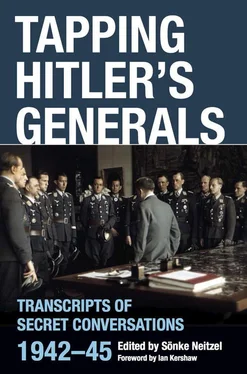

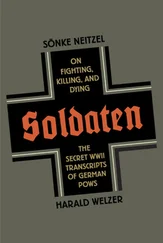
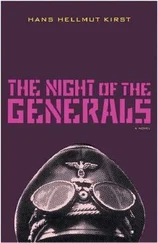


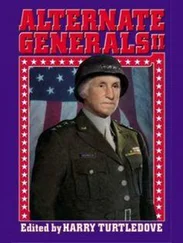

![Traudl Junge - Hitler's Last Secretary - A Firsthand Account of Life with Hitler [aka Until the Final Hour]](/books/416681/traudl-junge-hitler-s-last-secretary-a-firsthand-thumb.webp)



